Ask the Director: Noël Loozen
Noël is KS F's newest addition to the roster.
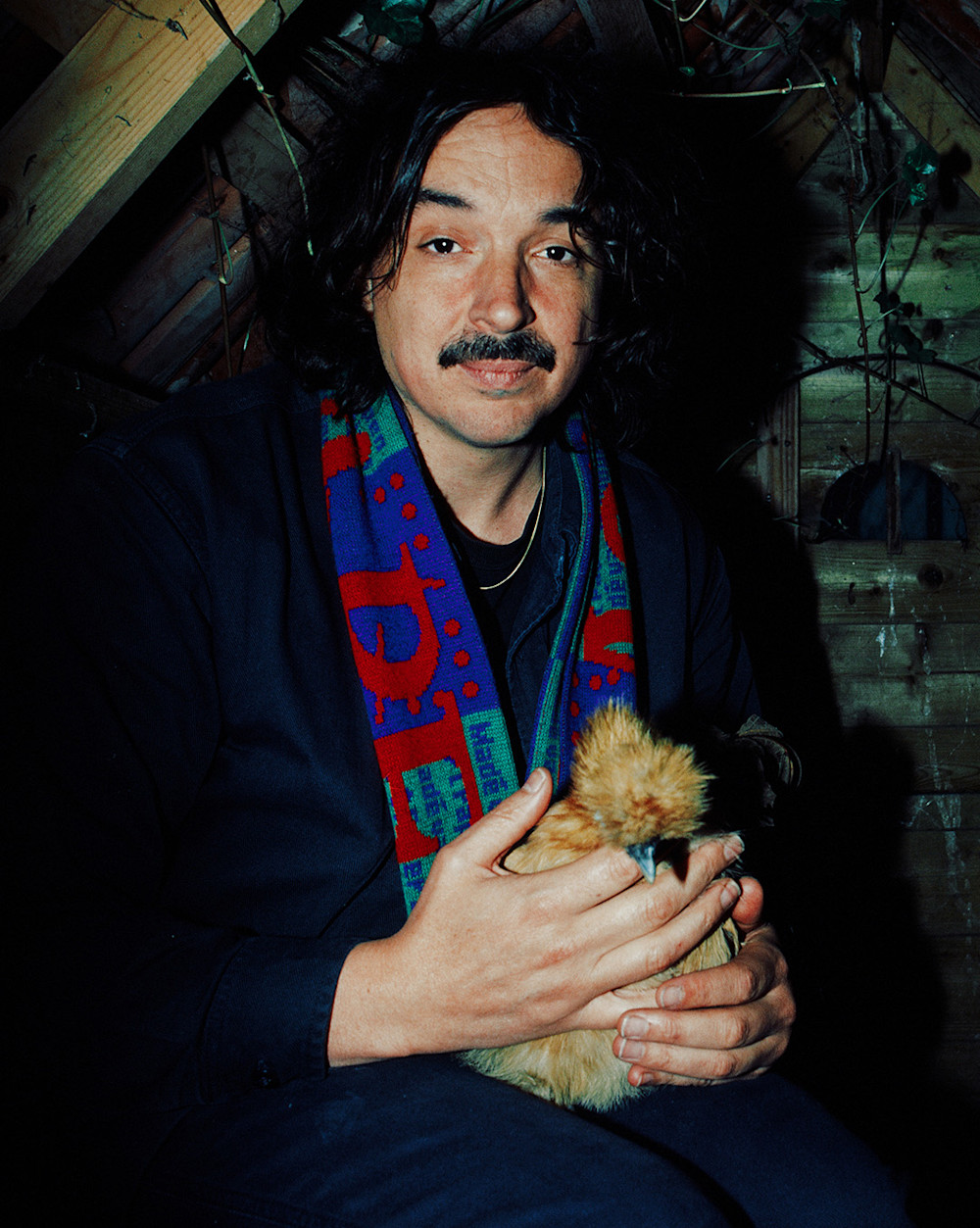
Noël Loozen is an all-around accomplished artist, photographer and director. His filmmaking has led to great success: his first short film ‘The Hornhunter’ was featured on Nowness, whilst ‘Spoetnik’ premiered at the prestigious Berlinale festival, won several awards and was selected as a Vimeo Staff Pick and featured on Short of the Week for its online launch. ‘Drama’, a small film about great sorrow was screening at all Cineville cinemas during Spring 2019. His most recent films ‘Botanica’ and television film ‘Limburgia’ both premiered and competed at the Dutch Film Festival. Driven by stories, Noël is fascinated by little worlds and the clumsiness of life. This manifests in his films by sharing the stories nobody is waiting for, or rather, the stories nobody knew they had to know about. Visually Noël keeps things simple whilst discreetly adding subtle hints of irony to his images. Moving between the worlds of photography and film, his work is very much a reflection of this hybridity.
All photos were shot in Noël’s garden, De Baarsjes, Amsterdam, November 2022 (c) Gregor Lehrl
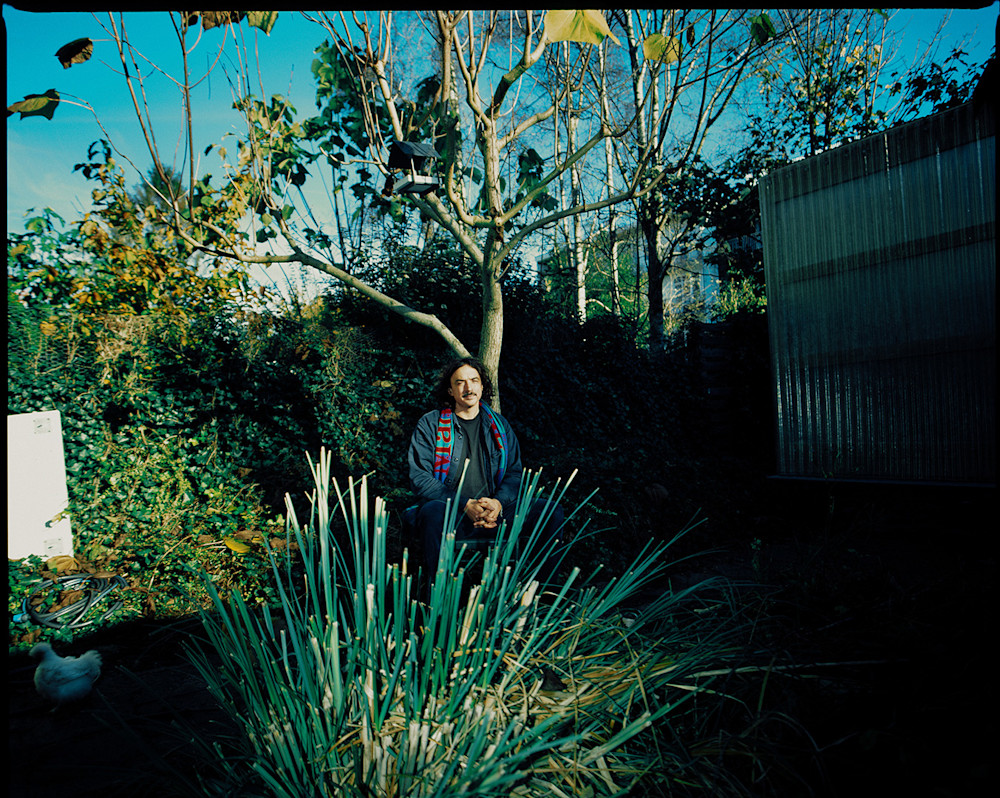
Freedom is one of the essential ingredients that make a film successful and fun to work on
CHAPTER A - KARL
Please tell us a little bit about the background of Karl!
Well, I was asked by Kaiserschnitt if I would like to make a film for the Vienna Tourist Board. There was a little script about a grumpy guy in a coffee bar. I love to study grumpy people, they have a lot of issues, so to me, it was drama and comedy at first sight.
I thought that this could be an excellent opportunity to make a film in a completely new setting, about a place that I had never visited before: Vienna. It could inspire me in a new way by putting myself into an unknown city, searching for the Grumpy stereotype. It sounded like an adventure!
It all also was a bit surprising because: Why me? I never visited Vienna in my life. Matthias Papst from Kaiserschnitt and I got on some zoom calls with the agency Jung von Matt Donau and the Vienna Tourist Board. From the start on, it was clear that there was a lot of freedom for the director … Freedom is one of the essential ingredients that make a film successful and fun to work on.
Before the actual shoot you visited Vienna for a research trip, what was the idea behind it?
As I have never visited Vienna before, Matthias and the Vienna Tourist Board invited me to their city. It was an experience I will never forget. I got a room with a view overlooking the whole city and a personal guide giving me all the tours that I wanted. As a tourist, I am not really a person that does these tours, but this time it was different. Jasha Novak from Hidden Vienna Tours picked me up and gave me a personal mix of all the tours he organises. Highly recommended! I remember walking in new shoes the entire day and ending up with blisters in the evening. But it was all worth it. My crash course in Vienna was completed!
I also visited a couple of coffee bars with grumpy waiters. Very important research material that was. What I loved about it was how carefully they were constructing the plate with the coffee and the petite glass of water as if it was a canvas they were painting. But when they arrive at the table, they almost throw the thing in front of you as if you were a prisoner getting his evening meal on a plate. I love these kinds of passive-aggressive characters.
I find people who take things in life very seriously very funny. Especially when it comes to the little things in life. And in this case, a man who wants to control everything so much that it is never feasible for the environment to comply. To me, this is Karl. Nothing will ever be good enough. There will always be something to complain about. Well, he loves complaining. So if there is nothing to complain about anymore, what is left? You could say he is married to his complaints, and they are happily married.
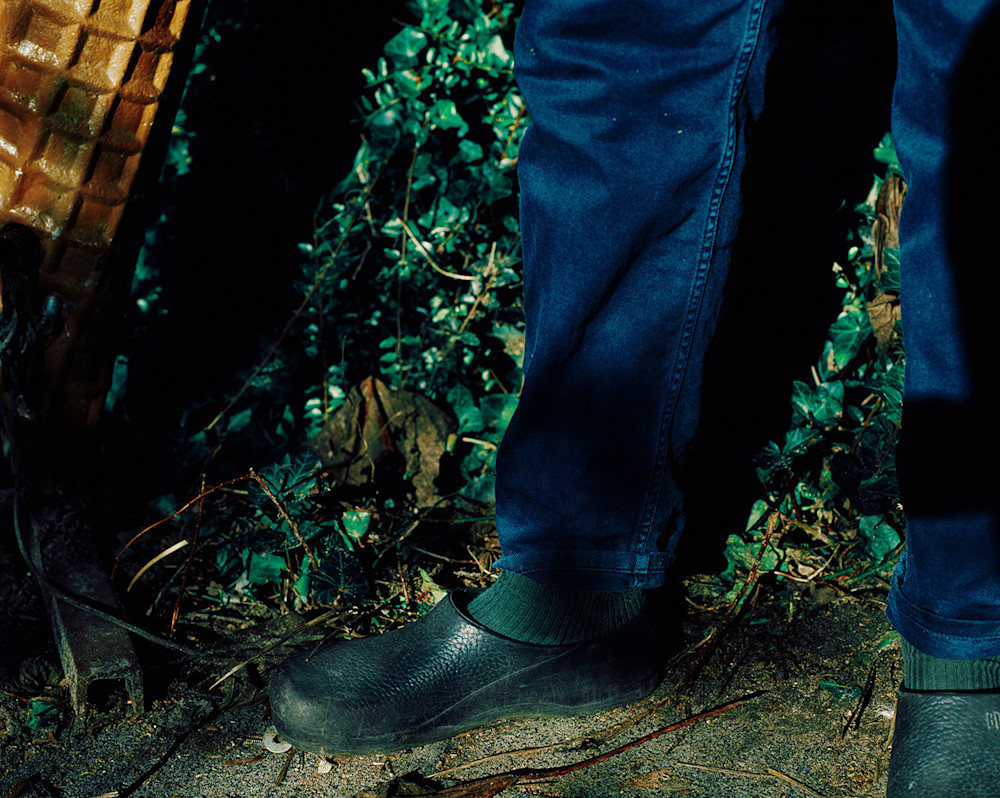
Please tell us about the working process with Markus Schleinzer; how did you approach the collaboration to bring Karl to life?
Finding the one and only Karl was the biggest challenge. It should be a Karl on first sight. Matthias and I looked at many casting proposals, from street casting to theatre and famous actors. Then Matthias introduced me to a picture of Markus. It was love at first sight. We proposed the actor to the agency and client, and I was 100% sure that he would pull it off. Markus and I were in constant exchange, and I discovered that he was exactly aware of the personality of our Karl.
Later I found out that Markus, besides being an actor and director, is also one of the most well-known casting directors in Austria. He casted, for example, for Michael Haneke and Ulrich Seidl.

You could just sit down in a little street in Amsterdam and just observe the world ...
CHAPTER B - EARLY DAYS OF NOËL
Where did you grow up, and how did that shape you?
I grew up in the South of Holland in a province called Limburg, near the border with Belgium and Germany. My dad was the owner of a frame shop where he framed all the works of painters, photographers and galleries. That way art was always present in our lives. It started with framing - I mean, everything is about framing - and it's important to choose what you are framing and what is excluded from the frame. In a nutshell, that is photography and cinematography.
Now, my dad lives in Walloon, the French-speaking part of Belgium, where he owns a little bar, and my mother lives in the centre of Maastricht. I am not sure in what kind of way growing up in the South has shaped me. I was running away from it because I wanted to go to an art academy. But then, 20 years later, I am making films that all have their starting point in the region where I am from. I think the South will always be in me. I love the significant differences on the rather small scale of the EU region. For me, the South of Holland is like some kind of example of Europe on a smaller scale. A lot of borders are very close to each other, and everyone has their own traditions and languages. I like the diversity of people and cultures. But I am also fascinated by how we all keep those cultures behind our borders. It’s almost like the closer you get to the border, the more people value their traditions. So I think this place where I grew up is filled with traditions and love for their culture. Some of these traditions are very special and I love how dead serious everybody is about it. It is a matter of life and death as you can witness in my film: 'Limburgia'.
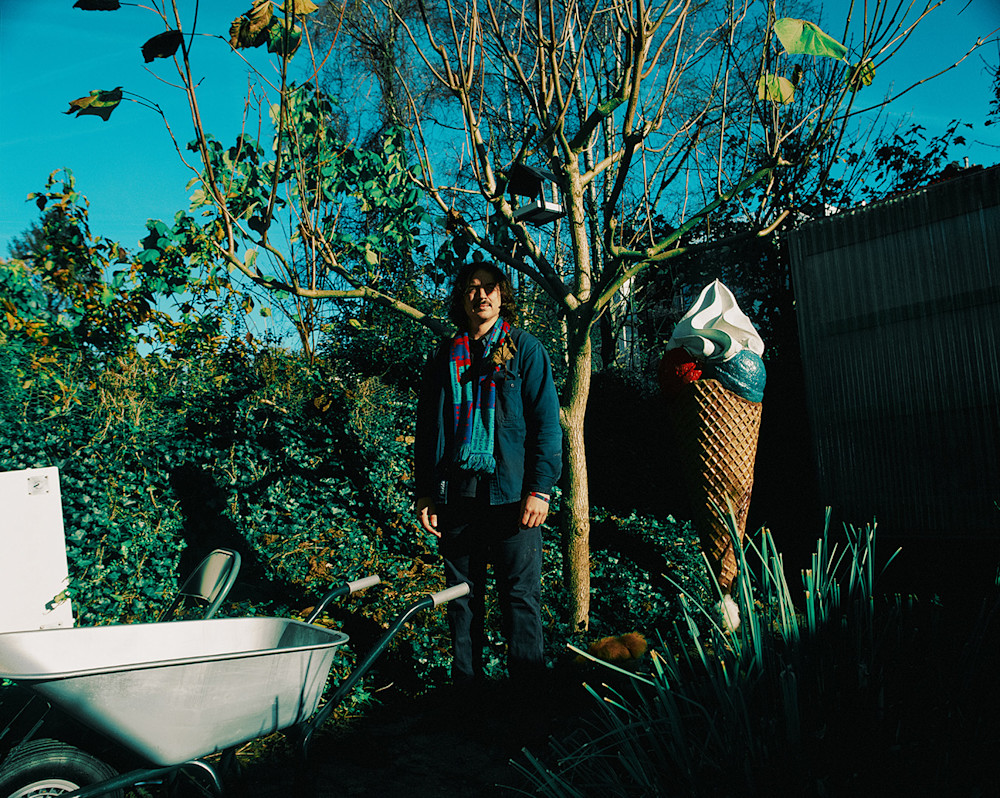
What are some of the differences between the South of Holland and Amsterdam?
Amsterdam, where I live with my family and my two chickens, is in a way the same and the opposite at the same time, it is like one big airport - without any borders between cultures, in fact, everybody wants to share their culture in one and the same city. That also inspires me in the case of storytelling. You could just sit down in a little street in Amsterdam and just observe the world ...
I use a strong photographic approach in film and a cinematic approach in my photography
CHAPTER C - PHOTOGRAPHY + FILM
Please tell us about the influence photography has on your filmmaking.
I am educated in both, I have a BA Fine Arts Photography at the Rietveld and a MA in Film at the Dutch film Academy in Amsterdam. I started as a photographer - but I graduated with two short looped films amongst 12 photographs that were called: 'It’s never too late to have a happy childhood', named after a famous rave party in Amsterdam. So from the start, there was always a fascination for these two mediums. I am actually interested in all mediums, but some are just easier for me to tell my stories with. Some projects fit better for photography, and some fit better for a film. But I am currently working on a couple of ideas to combine these mediums.
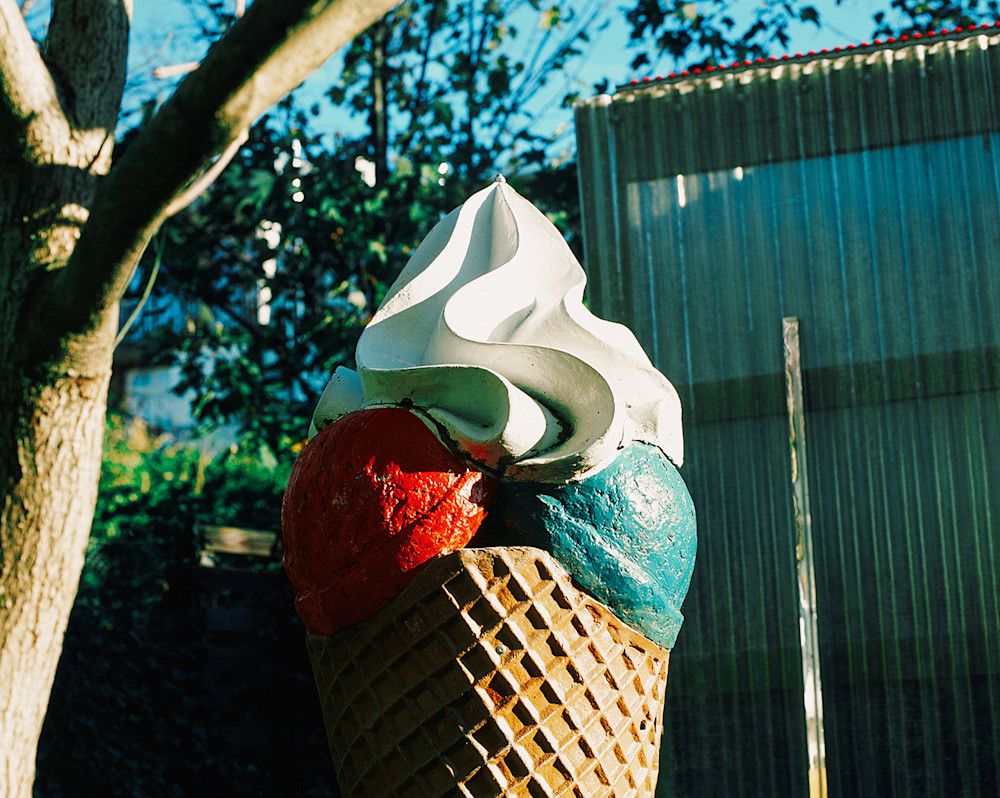
Your photo series ‘The End’ formally has a very cinematic feel. Would you say that its essence is equally drawn from the core of photo + film?
I use a strong photographic approach in film and a cinematic approach in my photography. In my latest project: ‘The End’, in which I picture my own death, I wanted to explore this even more - I was directing my own death, so there the concept adds to the form.
You once said that investigating and putting a lens on a small little world fascinates you. How would you describe the overall themes of your works as a filmmaker?
My work is characterised by my hybrid and larger-than-life approach to storytelling as a director and photographer. I usually take inspiration from my own life. A memory from my youth, a fascination that takes its own form and evolves. For me, filmmaking is an intensely personal process. Despite being a personal process, it’s not a solo mission. Rather the opposite. I consider the crew and team as family. It’s important to me that all feel part of that family and process.
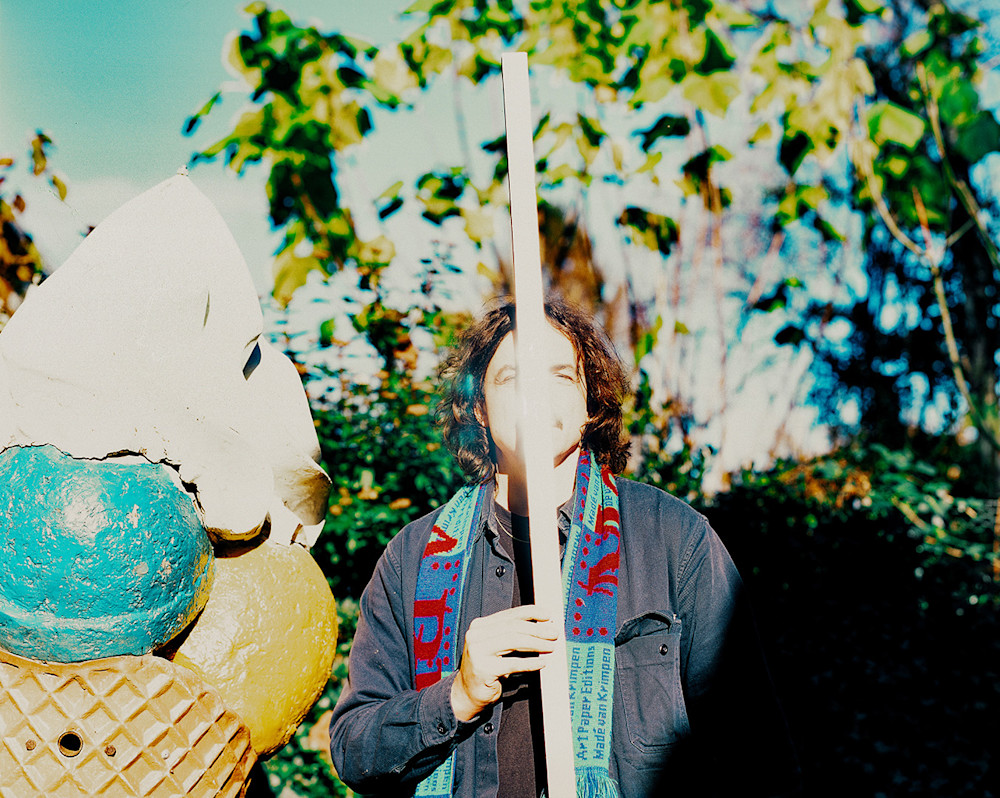
Ein Prost is one of my favourite films in your portfolio. Please tell us a little bit about it.
I was asked to make a film for a big exhibition during the Dutch Design Week curated by my friend and amazing architect Bruno Vermeersch. The theme and name of the exhibition was: ‘Intensive Care’, and the film should be recorded during the opening hours of the exhibition. So people could witness the filming as some sort of performance. And so I started thinking. At that time, my grandpa was in the hospital and got his leg amputated. The cause was his smoking habit. He always smoked a lot. And while visiting him we carried him outside with a missing leg and there we stood next to each other. He was extremely enjoying that cigar, although it probably cost him that leg. And I loved that moment of standing next to his wheelchair in this smoking area. I decided to use this as a starting point for the film Ein Prost ... It is a tribute to my grandpa Sjef.
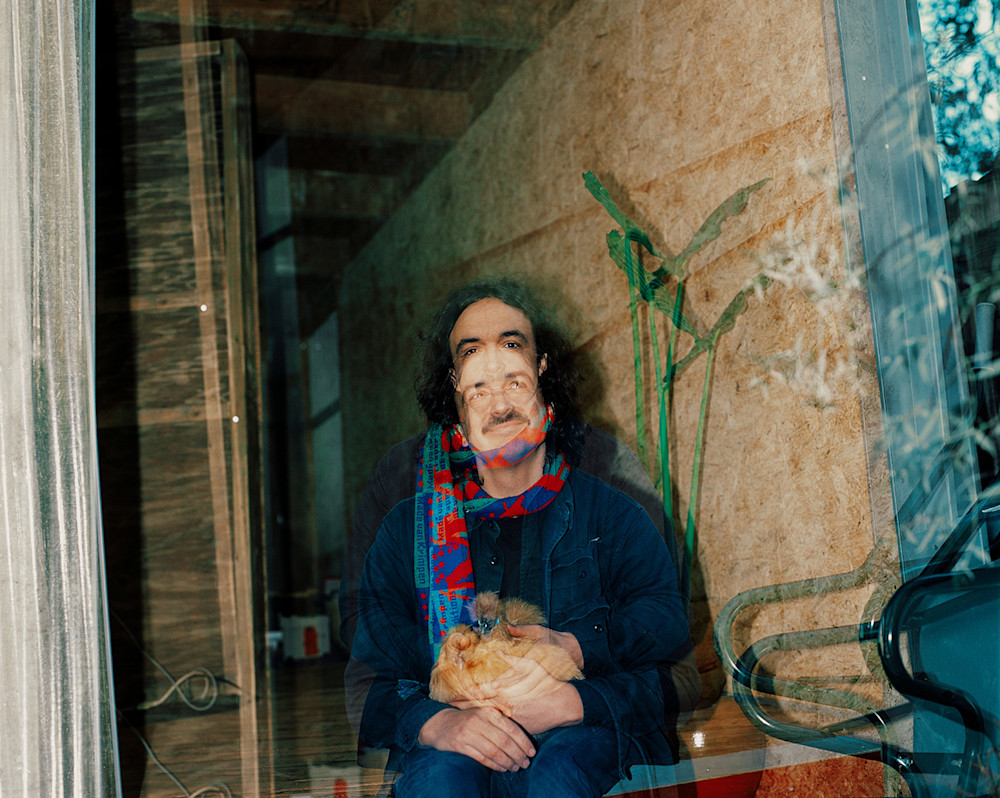
Which role does humour play in your films and where do you find it?
Humour is a very serious thing. It’s also very specific where drama has a more universal context. I think it’s easier to pinpoint something sad than something funny.
I love to zoom out in life and see myself sometimes in a very wide shot doing things. This is often the starting point. I laugh at myself because what the fuck am I doing or winding me up for … in the end, if we zoom out, we are on a round-shaped ball floating in an immense space. That, to me, is mysterious and gives everything we construct as humans and what is “normal” a perspective. So, I think we should take everything seriously, also my characters in my films, and at the same time we shouldn’t take it too seriously. In other words, I love the sense and the nonsense of life. Maybe I love the nonsense a little bit more though.
CHAPTER D - NON-STOP COMPLAINING
Please tell me about your office at the lobby in the VolksHotel in Amsterdam to let people complain 24/7. I see a clear parallel to grumpy Vienna here :)
True :) I am so fascinated by complaints that I opened a service desk in a Hotel that was open for 24 hours and invited the people of Amsterdam to complain. It uses a lot of energy to listen to all of them, so I only did it once for 24 hours non-stop. After that I visualised those complaints in the Amsterdam Newspaper called: ‘Het Parool’ and got my weekly column where people could send me a complaint and I visualised it into still life photography with a positive twist to the complaint. In the feature film that I am working on right now, complaining will also play a special part in the film. That's also the reason I was immediately in love with Karl, of course.
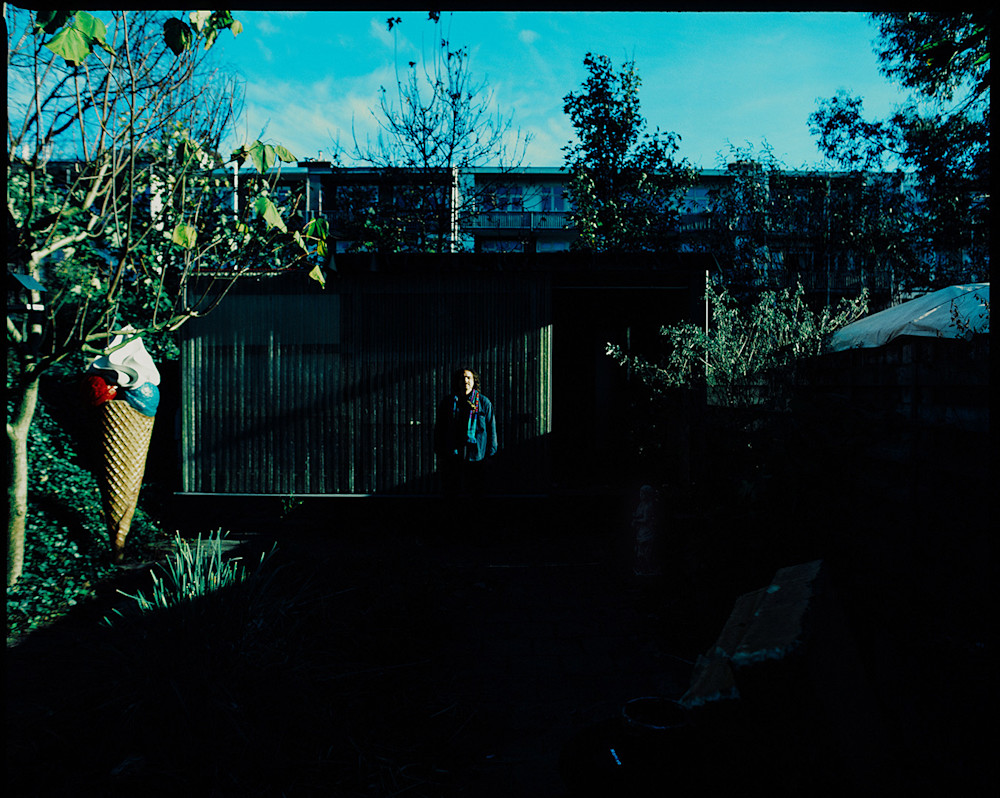
CHAPTER E - THE FUTURE
Which projects are you currently working on and which are in planning?
At the moment, I am directing the second season of a Dutch children's series for television: “Moonriders”. It’s a semi-fictional series about contemporary art told in a western badass vibe. I am working on two feature films: “Crapule” and “Toutes Directions” and in between I am figuring out my possible death in my photographic work and directing commercials like the one we made together at Kaiserschnitt: Karl is not happy …
See you at the Voodoo bar!



